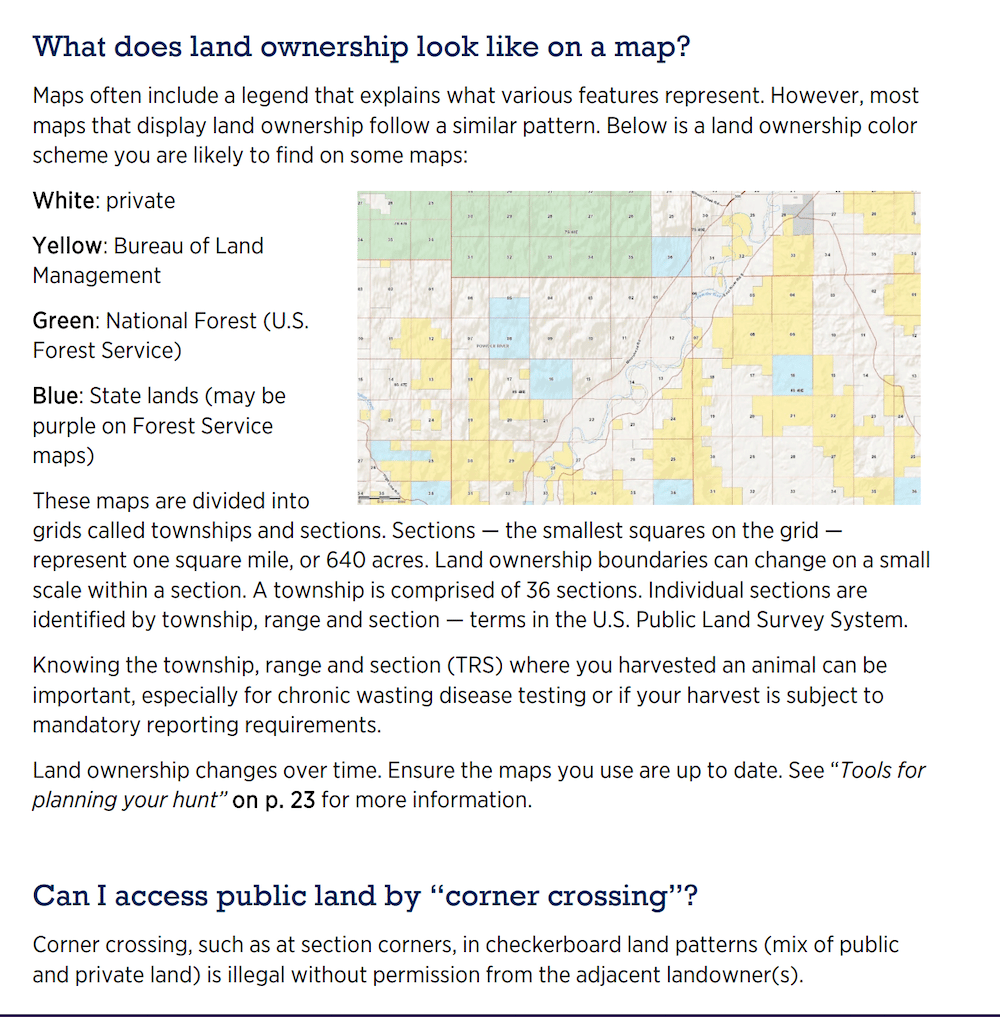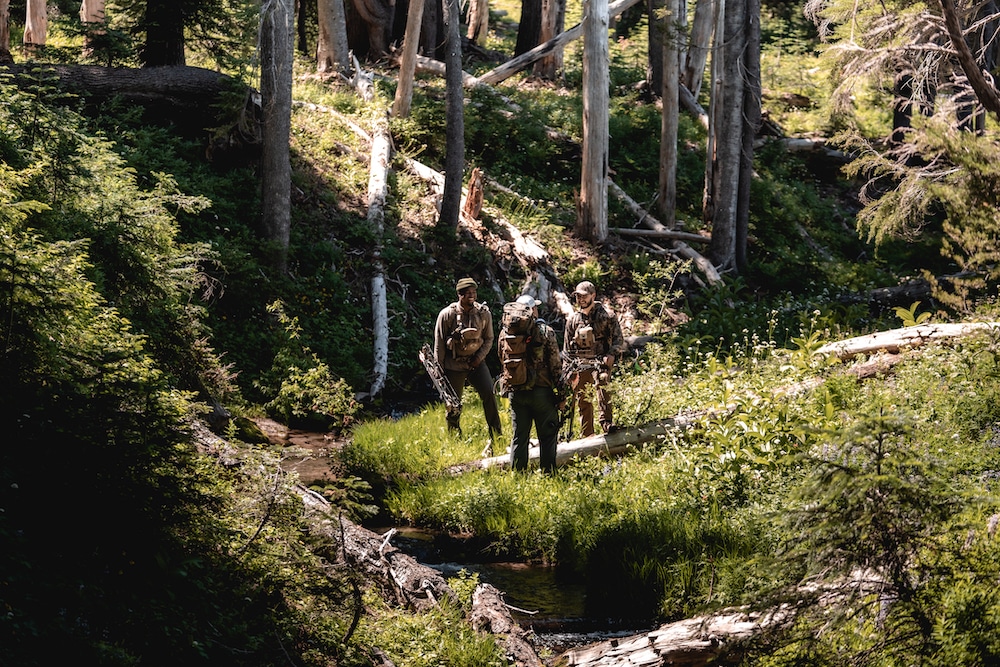With more than 245 million acres of federally owned land to its name, the Bureau of Land Management is responsible for one-tenth of America’s land mass — more than any other government agency. While all this prized real estate is open to public hunting and camping, it isn’t all accessible. Instead of being enjoyed by average hunters like you and me, some landlocked sections of BLM ground are accessible only to those with pockets deep enough to pay for a trespassing fee across neighboring private land. You read that right: A “trespassing” fee is often required to access public land. If that doesn’t sit well with you, keep reading.

Review this FAQ from Montana FWP. Photo Credit: Montana Fish Wildlife and Parks
If you’ve spent any amount of time looking at property maps in the Western United States, you’ve probably seen alternating sections of public and private land similar to a checkerboard pattern. Although the public properties connect at the corners, they’re inaccessible. That’s because corner crossing, as it’s commonly called, is illegal without permission from the adjacent landowners. The argument in favor of restricting access from one public property to another states that landowners own the airspace above the corner posts, and you cannot effectively cross that airspace without trespassing.
Corner crossing has received more press lately because of a recent lawsuit filed against nonresident hunters in Wyoming. Elk Mountain Ranch, owned by Fred Eshelman of North Carolina, filed criminal trespass charges against four hunters who built a ladder to cross from one section of public property to another. The hunters hauled the ladder to the corner of the property and assembled it so the legs touched the public sections on both sides, overtopping a corner post. The ladder never physically touched the private property owned by Elk Mountain Ranch, but the ranch nonetheless pressed charges because the hunters passed through the airspace. Although the hunters were found not guilty of their criminal trespass charges, Elk Mountain Ranch claimed $3.1 million to $7.75 million in civil court for damages to the property simply because the hunters passed through the airspace while using the ladder.

Check maps to make sure you’re hunting on public land. Photo Credit: Bowhunters United
Lawsuits such as the Elk Mountain Ranch case drive future management and decision-making about rules and regulations related to public-land access. When public property of any kind is landlocked by the surrounding private land, it’s virtually impossible for hunters to access it conventionally. The private landowner receives the benefit of additional acreage they don’t pay property taxes on, and hunters are forced to find other options to access the lands — or somewhere else to hunt. This creates more crowding and competition on the public lands that are accessible, and that detracts from the hunting experience. Recent findings from onX Hunt suggest more than 8.3 million acres of corner-locked public land are inaccessible to hunters across the West.
The Elk Mountain Ranch case has drawn more public interest than any other corner crossing case. That’s a good thing, pending a positive outcome for the hunters. Regardless, the case is something hunters should be paying close attention to, as it has potential to set a new precedence for corner crossing in years to come.
If you’re planning a Western hunting trip of your own, BLM land can be an incredible resource. While the hunters in the Elk Mountain Ranch case pushed the limits of creative access, there are other ways to find spots to hunt. Start by downloading your favorite mapping application for a complete overview of public and private land boundaries, trail systems, campgrounds and more. An initial e-scout of potential locations will help narrow your focus. Then, contact a biologist or game warden in the state you’ll be hunting for an overview of the unit and to answer any questions you might have before your hunt. These folks are a great resource and can provide additional intel to help make your hunt successful.
It’s critical for hunters to stay informed about current legislation that impacts public land and hunting access. Bowhunters United advocates on behalf of bowhunters and makes sure its members are the first to know about any hot topics that might impact our sport. It’s never been more important for hunters to make our voices heard, and Bowhunters United is the megaphone necessary for amplifying our message. To become a member, click here.